Indonesia is a vast country, blessed with thousands of islands, diverse ethnic groups, each having their special mother tongues and variety of cultures, religions and beliefs, with Islam being the religion the majority of the people profess.
To welcome the holy month of Ramadhan, Muslims from all corners of Indonesia are known to practice certain rituals inspired by their faith, with traditions passed down from generation to generation.
Here are some unique traditions carried out in Indonesia to welcome Ramadhan.
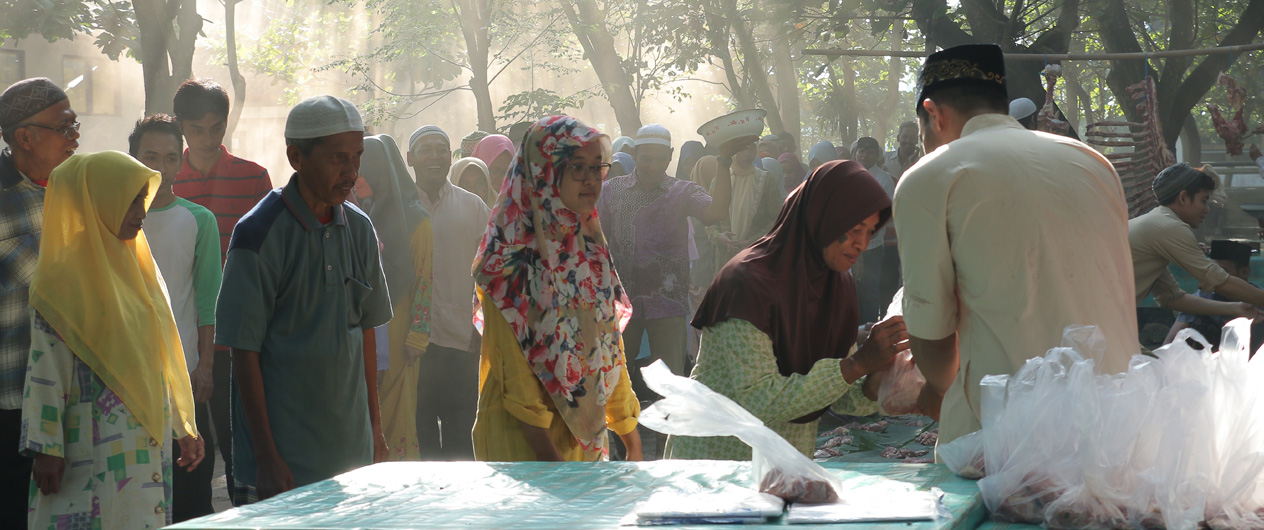
Meugang – Aceh
Meugang is a tradition of cooking and enjoying meat dishes with the whole family to welcome the holy month.
The Meugang tradition, or Mameugang, is believed to have flourished since the era of Aceh Sultanate, under the reign of Sultan Iskandar Muda.
At the time, Sultan Iskandar Muda ordered his subjects to slaughter some cows and distributed the meat to the poor.
Aceh Darussalam Sultanate in the 16th and 17th centuries was the biggest Islamic kingdom in Southeast Asia and, thus, it is concluded that the Meugang tradition is closely connected to the teaching of Islam.
Today, the tradition, which usually runs for two days before the first day of the month of Ramadhan, is still observed by the Acehnese, according to bbc.com.
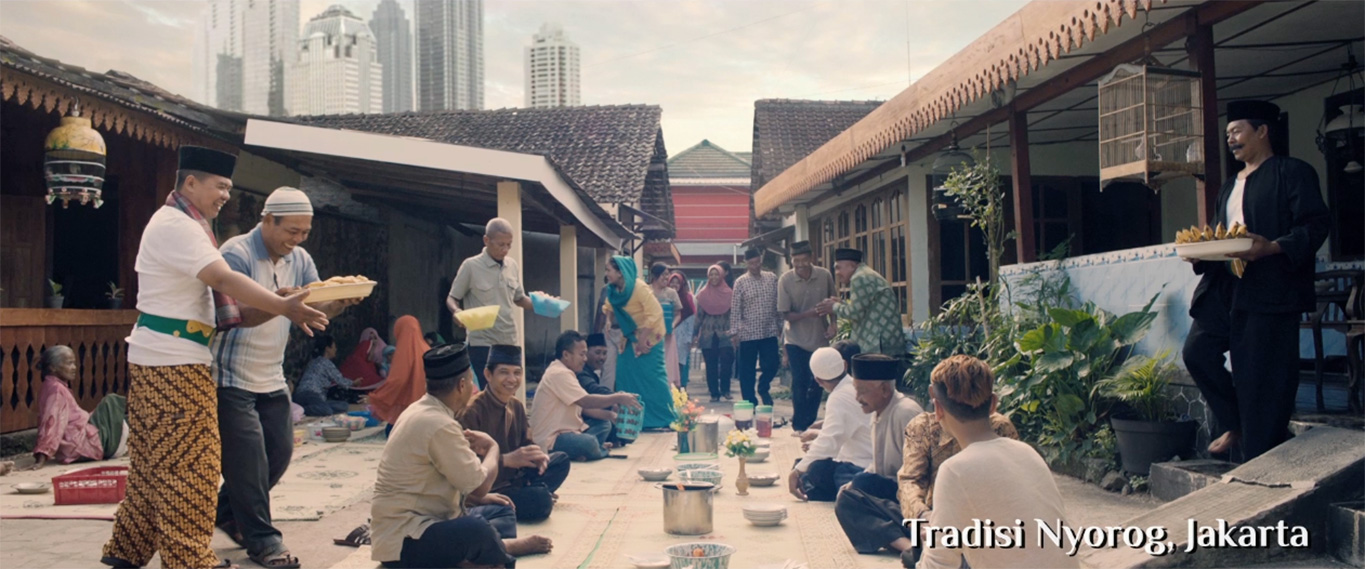
Nyorog – Jakarta
Betawi people, the natives of Jakarta, have their own tradition related to the holy month. Nyorog is a tradition observed to strengthen ties between family members.
Kumparan.com said that, typically, they exchange gifts of meat, dishes, foods or various items.
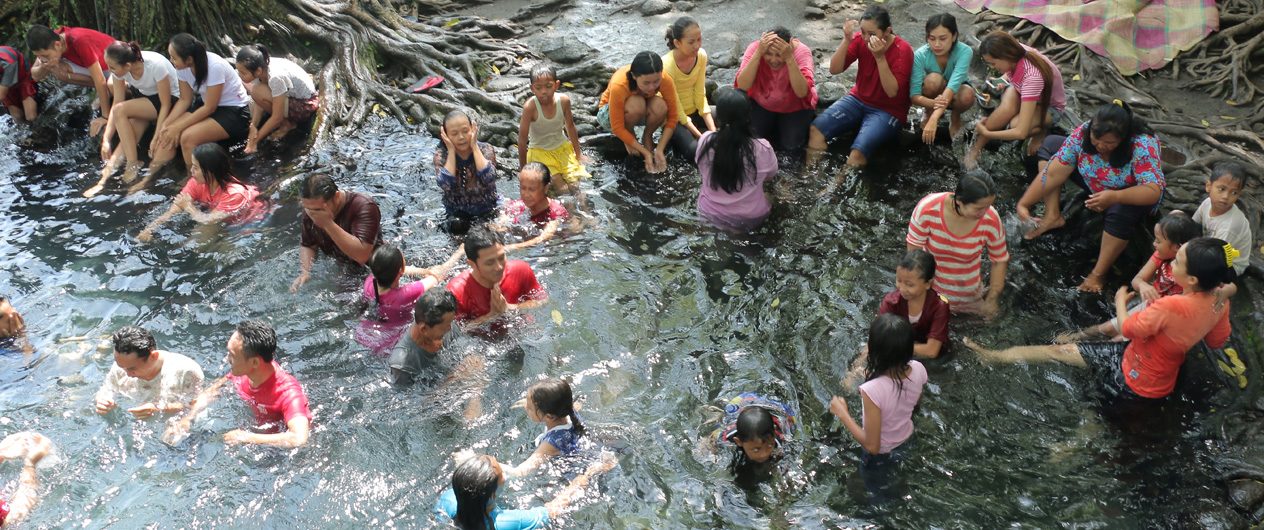
Padusan – Central Java Tengah & Yogyakarta
In the past, the Padusan tradition was practiced before the fasting month in pools at mosques. Today, however, people do it at their own home. This tradition is from the time of Wali Sanga and symbolizes an act of cleansing the body, mind and spirit before entering the holy month.
In the past, people would go to a spring well. Its water was believed to be able to provide blessings. They would bathe in the wells, submerging the entire body from the top of the head to the toes.
In Yogyakarta Special Region (DIY), the tradition has been observed since the reign of Hamengku Buwono I. The tradition was always observed one day before Ramadhan in the pools at mosques or in the spring wells designated by the palace, according to nationalgeographic.co.id.
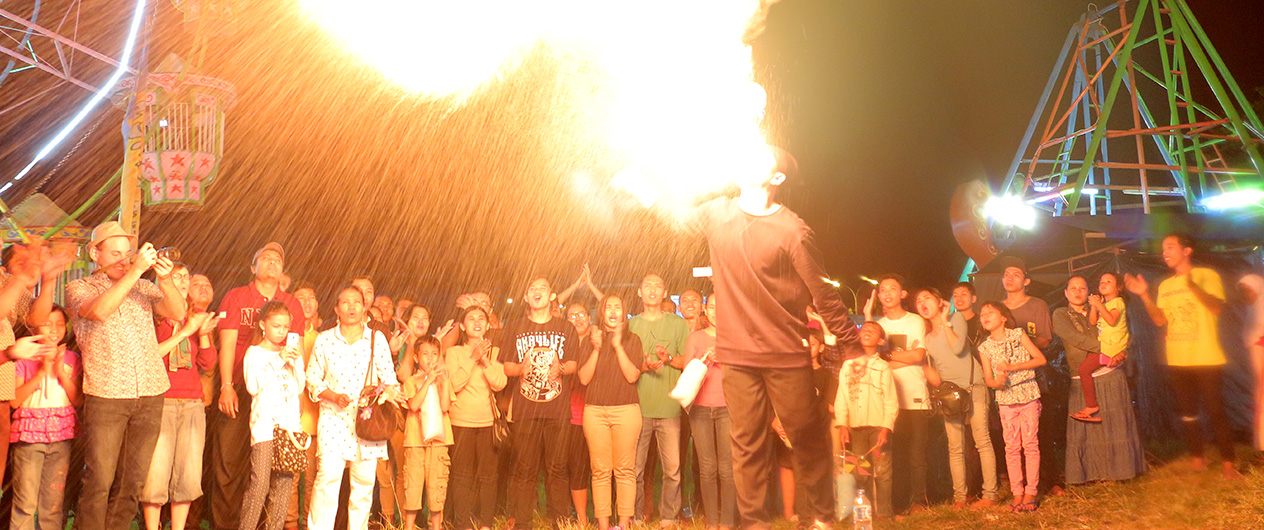
Dandangan – Kudus
The tradition of tabuhan bedug (beating the barrel drum) is called Dandangan. The event is usually held 10 days before the first day of Ramadhan.
The word Dandangan comes from the sound made from beating the center of a barrel drum’s drumhead. The people in Kudus would do this to welcome Ramadhan, producing the sound, which with a little bit of onomatopoeia becomes Dandangan.
In the past, the announcement about the start of Ramadan was usually delivered directly by Sunan Kudus, who was believed to be very well-versed in astronomy. Sunan Kudus would make the announcement at the square in front of Kudus minaret, and people would respond by beating the barrel drums.
The beating of the drums happened twice. The first was to gather the masses; the second was to accompany the announcement. This event usually was held after Isya’ (communal evening prayer).
Students of Sunan Kudus would also attend the gathering. These included Sultan Trenggono from the Kingdom of Demak, Sultan Hadirin from Jepara and Aryo Penangsang from Blora. People from outside Kudus would also enthusiastically await the announcement, all gathering in one spot in front of Menara Kudus Mosque.
This habit of gathering in front of the mosque to welcome Ramadan has become a tradition. Some vendors also come and sell traditional, ready-to-eat foods. The market-like activities lasted from dawn until around midday. The people would usually move to the east side of the road in front of the mosque, and the activities continued, lasting from afternoon until dawn of the next day. This fair lasted for a day, according to m.tempo.co.
For the people of Kudus, Dandangan procession marks the beginning of Ramadhan.
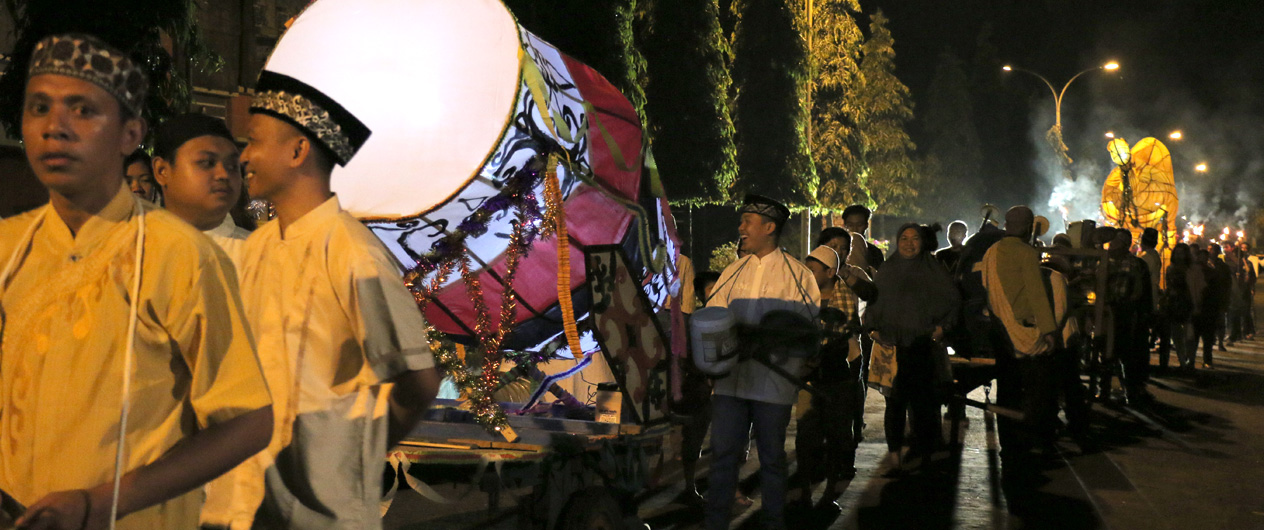
Bagarakan Sahur - Kotabaru, South Kalimantan
Bagarakan Sahur refers to the tradition of a group of youths in Kotabaru, South Kalimantan, to wake the people and have their pre-dawn meal throughout the month of Ramadhan. They usually perform simple rhythmic sounds using instruments they made from used items such as bottles, gallons and cans.
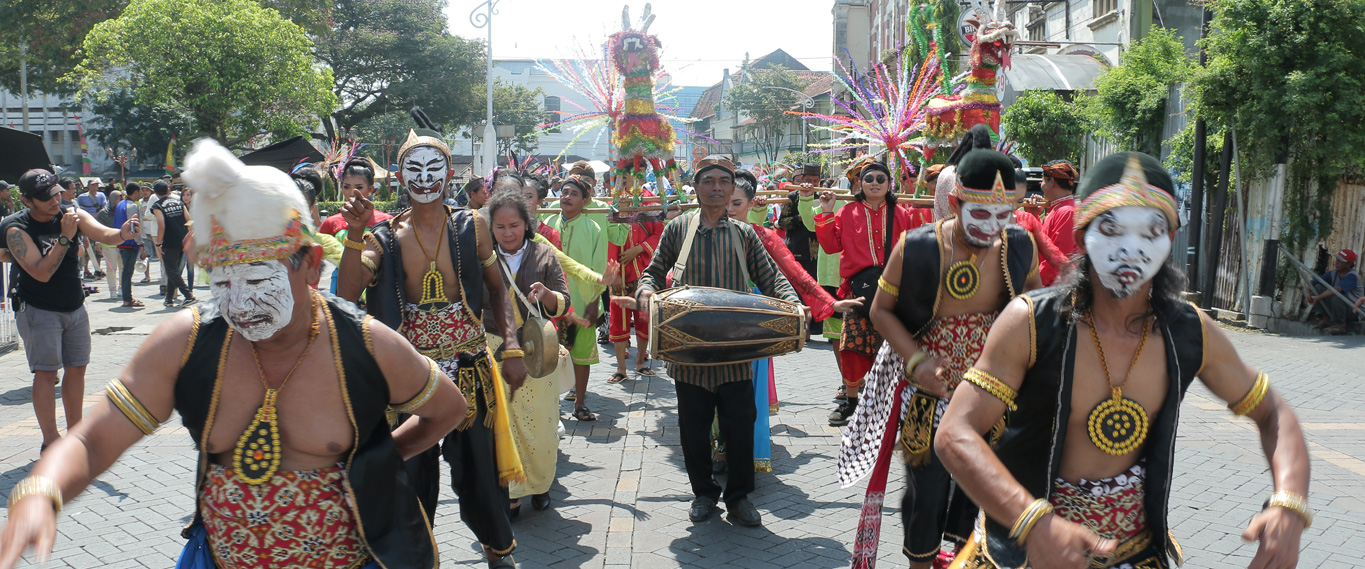
Dugderan – Semarang
Dugderan is a tradition of people in Semarang to welcome Ramadhan, usually held one to two weeks prior to the holy month. In the past the communal festival included the sounding of a cannon, fireworks display, japing dance performance, a parade and beating of traditional barrel drums as well as an official announcement of the start of the holy month.
To recreate as closely as possible the first iterations of the tradition, today people in Semarang substitute the cannon with firecrackers, according to kumparan.com.
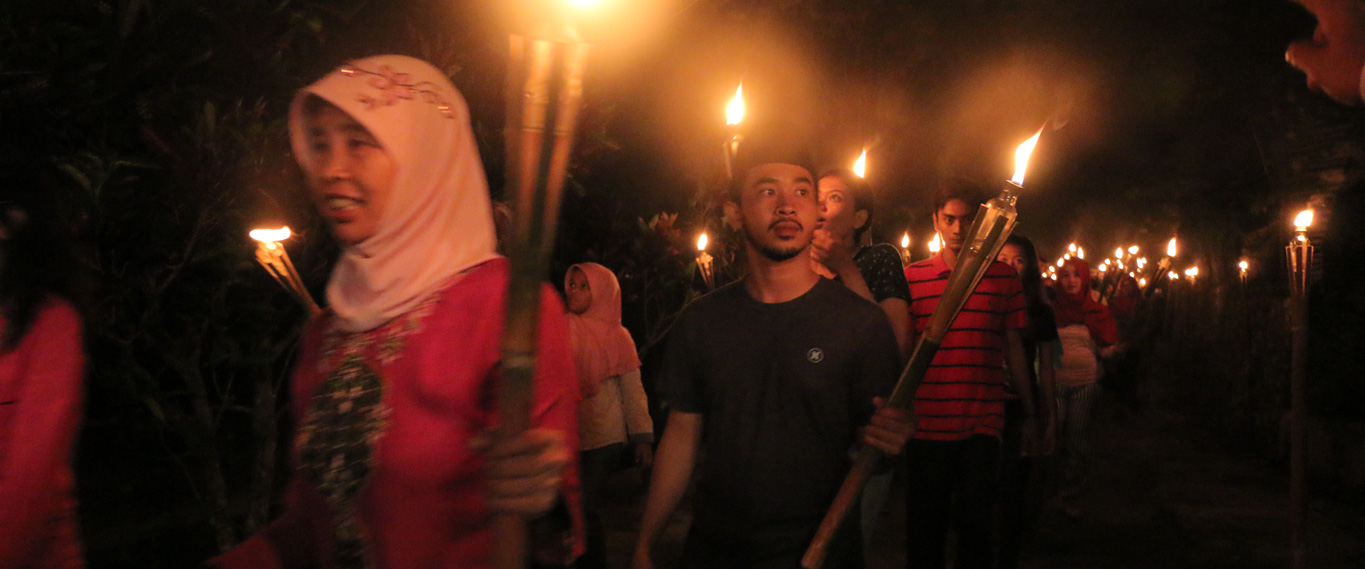
Festival Ela-Ela - Ternate
For centuries at night during Ramadhan, the region of Ternate comes alive with an Islamic tradition in which the people welcome and “catch” Lailatul Qadar. This tradition is called ela-ela.
The local government of Ternate has included Ela-Ela Festival into the region’s calendar of events, so today the ritual to welcome Lailatul Qadar usually starts with communal prayer at Ternate Sultanate Kedaton.
This is, then, followed by the burning of torches, which in Ternate language called ela-ela, by representatives of Ternate Sultanate and the Ternate city government. The people, either those in Kedaton or those in Ternate, follow suit and burn their own bamboo torches, according to republika.co.id.
People of Ternate burn torches and resin on certain nights of Ramadan because based on the centuries-old belief, during these times hosts of angels descend from heaven, prompting people to burn the torches to light their way and burn resin to perfume the air.
Despite our different ways, we worship but one Almighty.
This article brought to you by:



